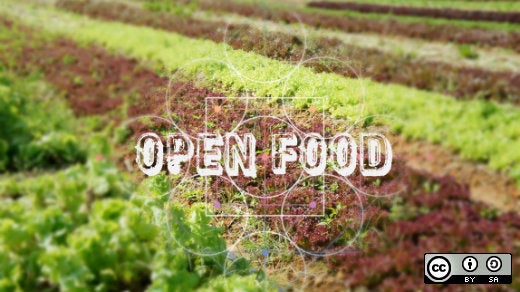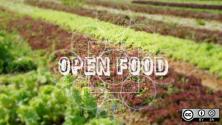For the past six years, I’ve been privileged to work among people who have dedicated their personal and professional lives to advancing the causes of fair, local, organic, and sustainable agriculture at the Rural Advancement Foundation International, a nonprofit organization based in Pittsboro, North Carolina. While my colleagues and I care deeply about how our food is grown, we care just as much about those who grow our food.
Our mission is to cultivate markets, policies, and communities that sustain thriving, socially just, and environmentally sound family farms. We directly assist individual farmers who rely on our staff of experienced farm advocates, and we work at the local, national, and international levels for a more just and sustainable food system for all.
We rely on an open, horizontal approach in our organizing and advocacy. Our initiatives are grounded in the experiences of family farmers and those directly affected by US agricultural policies. Through decades of collaborative organizing and advocacy, we have built relationships with a wide community of stakeholders in agriculture. Over the years, our unique approach has enabled us to empower farmers, mobilize diverse groups of partners, and build effective coalitions to work toward common goals.
RAFI has been a long-time advocate for farmers’ access to open pollinated seeds. Through our Breeding for Organic Production Systems (BOPS) coalition, RAFI elevates the need for suitable, publicly available seed varieties by engaging farmers in on-farm variety trials for organic seed production. Growers collaborate with plant breeders to research and refine seed varieties based on their experiences, opening channels of communication between farmers and university-based plant breeders.
Michael Sligh, our Just Foods Program Director and a founding member of the National Organic Standards Board, has been engaged in visionary work empowering local, national, and international agricultural communities to create and share standards that demonstrate their commitment to environmental and social justice. He co-organized the 2014 Summit on Seeds and Breeds for 21st Century Agriculture, the proceedings of which were published online and are well-worth reading.
Our Agricultural Reinvestment Fund is essentially an open source approach to developing innovative agricultural models and new farm enterprises. In 1998, during the Tobacco Master Settlement Agreement, RAFI developed and promoted the idea of setting aside a portion of the settlement funds to help transitioning and former tobacco farmers diversify their production and remain profitable amid the dramatic decline in farm incomes across the Southeastern US.
Today, we continue to award grants to individual farmers and collaborative producer groups in North Carolina for innovative projects with priority given to former tobacco farmers and those transitioning out of tobacco production. The farmers who are awarded grants give back to their farming communities by documenting and sharing their projects and their 'lessons learned' through public demonstrations and farm tours.
This year, we launched Growing Innovation, a project that will publicly document the more than 500 farm projects funded through the program. We’re currently developing the Growing Innovation Online Library to highlight some of the best examples of farmer-driven innovation in agriculture. Through Growing Innovation, these projects will be made available as models for other farmers to learn from and build upon. The online library will include interactive maps of farm projects along with photos, project plans, budgets, and other useful information. We’re using an open source mapping platform, Mapbox, to develop the maps. In the spirit of collaboration, we also plan to contribute the contents of our online library to FarmHack.net, a resource and community of farmers, designers, programmers, and tinkerers.
Past farmer grant projects have included hundreds of innovative initiatives: the development and application of season extension methods and technologies, model pack-houses, mobile farmers’ markets, heritage poultry breeding, farm-to-school projects, specialty produce, micro-dairy bottling plants, cheese-making facilities, tropical plant production, wind-powered farms, model collaborative marketing ventures, and dozens more farmer-driven enterprises. As just one example of what farmers can do with a little seed money, Lil Farm’s George O’Neal and Kelly Owensby started started a local sustainable agriculture tool lending library that now includes 11 farms.
Dr. Andrew Brod at the University of North Carolina at Greensboro Center for Business and Economic Research conducted a study of our grant program over a three-year period. His study found that from 2008 to 2011, the program strategically invested approximately $3.6 million in small family farms, resulting in more than 4,100 new jobs; more than $700 million in overall economic impact; and $205 in economic activity from every $1 granted. Part of the reason for the astonishing impacts is that the design of the grant program encourages farmers to innovate, develop replicable projects, and then demonstrate their handiwork and share what they’ve learned. Our role is to grease the wheels and take the risk out of developing open source innovations in production, processing, distribution, and marketing.
The idea of reinvesting in small farms and giving farmers the seed money to carry out their own ideas seems obvious, but it was and still is groundbreaking. In North Carolina, the funds for these grants largely derive from a portion of the Tobacco Master Settlement Agreement’s distribution to the NC Tobacco Trust Fund Commission. Our grant program relies on the generous support from the Commission. Now in its eighteenth year, the lessons from this small-scale farmer grant program have never been more important. Though we’ve distributed just about $5 million dollars in grant funds, the investment and open source ethic promoted by the program continue to positively impact generations of farmers and agricultural communities.







Comments are closed.